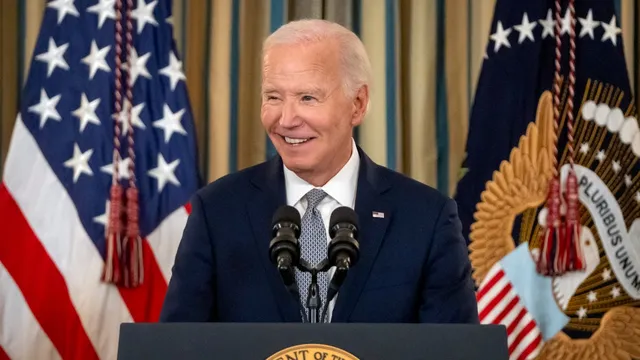
Biden blocks Nippon Steel's bid for US Steel amid national security concerns
2025-01-07 11:12- President Joe Biden used presidential powers to block Nippon Steel's proposed acquisition of U.S. Steel due to national security concerns.
- The decision followed an inconclusive review by the Committee on Foreign Investment in the United States on the potential risks of the deal.
- Biden's actions reinforce his commitment to maintaining a strong domestic steel industry in American hands, aligning with labor union support.
Express your sentiment!
Insights
On January 3, 2025, President Joe Biden exercised a presidential power to prevent Nippon Steel, a Japanese company, from acquiring the Pittsburgh-based U.S. Steel Corporation. This decision was influenced by concerns over national security and came after a lengthy review process by the Committee on Foreign Investment in the United States (CFIUS). The committee was unable to come to a consensus on the risks posed by the deal. Biden’s commitment to protecting American manufacturing, particularly in the steel industry, was cited as a key reason for blocking the acquisition. He emphasized the importance of keeping domestic steel production in American hands, labeling it essential for both national security and resilient supply chains. The move is significant as it underscores ongoing tensions regarding foreign ownership of crucial American industries and reflects Biden's focus on protecting American jobs and industry from foreign influence. The decision aligns with union support, as labor unions had registered their concerns regarding potential job cuts and financial transparency from Nippon Steel should the merger have proceeded. Biden’s action not only affects Nippon Steel’s plans but also serves as an assertion of American control over its vital manufacturing assets in a climate of increasing global economic interdependence, particularly with major trading partners such as Japan.
Contexts
The recent decision by President Biden regarding U.S. Steel and Nippon Steel has significant implications for both domestic and international steel markets. This decision relates to the ongoing efforts to strengthen domestic manufacturing capabilities and enhance trade relations with allied countries. The automotive industry, construction sector, and infrastructure projects heavily rely on steel, making this decision crucial for economic recovery post-pandemic and for addressing supply chain challenges. By fostering a cooperative agreement between U.S. Steel and Nippon Steel, the administration aims to not only support the American workforce but also modernize production techniques that can reduce carbon emissions and improve efficiency in steel manufacturing.